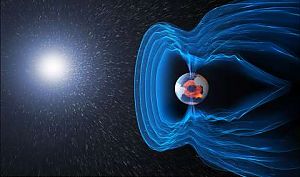Summer School Alpbach
Organizer
The Summer School is organised by the Aeronautics and Space Agency of FFG and co-sponsored by the European Space Agency (ESA) and the national space authorities of its member and cooperating states. A traditional partner is the International Space Science Institute (ISSI). It is also supported by Austrospace, the association of Austrian space industries and research institutions.
Content Description

The Summer School Alpbach is a 10 day learning experience for 60 selected science and engineering students from ESA member countries.
They will attend lectures and work intensely within groups to define and design a space mission under the supervision of experts to formulate observational objectives to advance the understanding of the behaviour and the coupling processes of plasma at several astrophysical scales (Earth, Planets, Sun, Across the Universe).
On the last day of the Summer School Alpbach the 4 teams of 15 students each need to present a mission study to an expert review panel.
Program
The Summer School programme will focus on different plasma regions (Earth, Planets, Sun, Across the Universe) and the lecture programme will cover the following subjects:
- Earth's Magnetosphere as Plasma Lab
- Plasma Around Planets and other bodies
- In-situ measurements of plasma
- The Sun, Heliosphere, Stars
- Extreme Plasma Environments across the Universe
- Remote Sensing of Plasma
- Spacecraft Constellations
- Telescopes for Plasma observations
- Instrumentation both in-situ and remote sensing
- Simulation (& lab measurements)
- Ground based and active experiments
The offered lectures will cover existing and planned space missions, space mission design, and the principles of instrumentation for the required observations, in-situ measurements as well as remote sensing.
The lectures will provide the scientific and technical background needed for defining and elaborating innovative space missions and to select and formulate observational objectives, new satellite missions to advance the understanding of the behaviour and the coupling processes of plasma at several astrophysical scales.
It will be an in-depth learning experience, attending lectures and working intensely within smaller groups to define and design a space mission under the supervision of noted scientific and engineering experts.
The aim of the workshop is to develop four mission concepts - one by each team, to a point where a space agency could, in principle, take the concept over and start the mission assessment phase.
The teams select a mission concept based on the information provided in the lectures and their own knowledge of the topic. They then define the scientific objectives of their proposed space mission and provide a preliminary end-to-end mission concept including spacecraft, scientific instruments as well as mission and science operations that will meet their stated mission objectives.
By the end of the workshop, the teams will have considered not only the scientific instrumentation which can meet the chosen scientific requirements, but also the mission design (launch, transfer and orbit), the spacecraft design with all required subsystems together with rough order of magnitude mission cost and the development schedule.
Each student team will present a mission study to an expert review panel and to the other teams, tutors and lecturers on the last day. The Summer School Jury will award the projects in the categories
- Best science case for the mission
- Best technical case for the mission
- Most competitive mission
- Best presentation
Target Audience
Students from ESA member and cooperating countries
Participant Information
The Summer School is open to 60 selected young science and/or engineering students and graduates from among the member, associate and cooperating states of the European Space Agency (ESA)*).
The working language of the Summer School will be English.
A call for student applications will be opened in due time. Relevant information will be provided in due time via the homepage, mail and social media.
Who can apply?
In order to be able to apply and to be eligible for participation, you need to be:
- a citizen from an ESA member state or from one of the European associate and cooperating countries
- enrolled as a student (Bacherlor, Master or PhD) in a university
The number of participants will be limited to 60 students. A selection is necessary and the admission process is competitive.
The Summer School Alpbach is a joint effort of FFG, ESA and its member states. FFG as the main organiser works with national contact points in the ESA member countries. The selection of participants will be done by the national points of contact.
Selection criteria are:
- qualification, academic grade
- experience and background
- expertise in the specific topic of the Summer School
- science and/or engineering expertise
- skills valuable for a space summer school
- diversity as regards gender, nationality & member states, age, across universities
A registration fee of € 450,- will be charged. This fee covers working material, free access to copying and computer, e-mail and internet facilities at the School House, coffee breaks and dinner vouchers (including one free drink per evening) throughout the period of the Summer School including the weekend.
*) ESA Member States: Austria, Belgium, Czech Republic, Denmark, Estonia, Finland, France, Germany, Greece, Hungary, Ireland, Italy, Luxembourg, the Netherlands, Norway, Poland, Portugal, Romania, Spain, Sweden, Switzerland, United Kingdom
Associate members: Canada and Slovenia
Cooperating States: Bulgaria, Cyprus, Latvia, Lithuania, Malta and Slovakia
Contact Address
Michaela Gitsch
E-mail: michaela.gitsch@ffg.at
